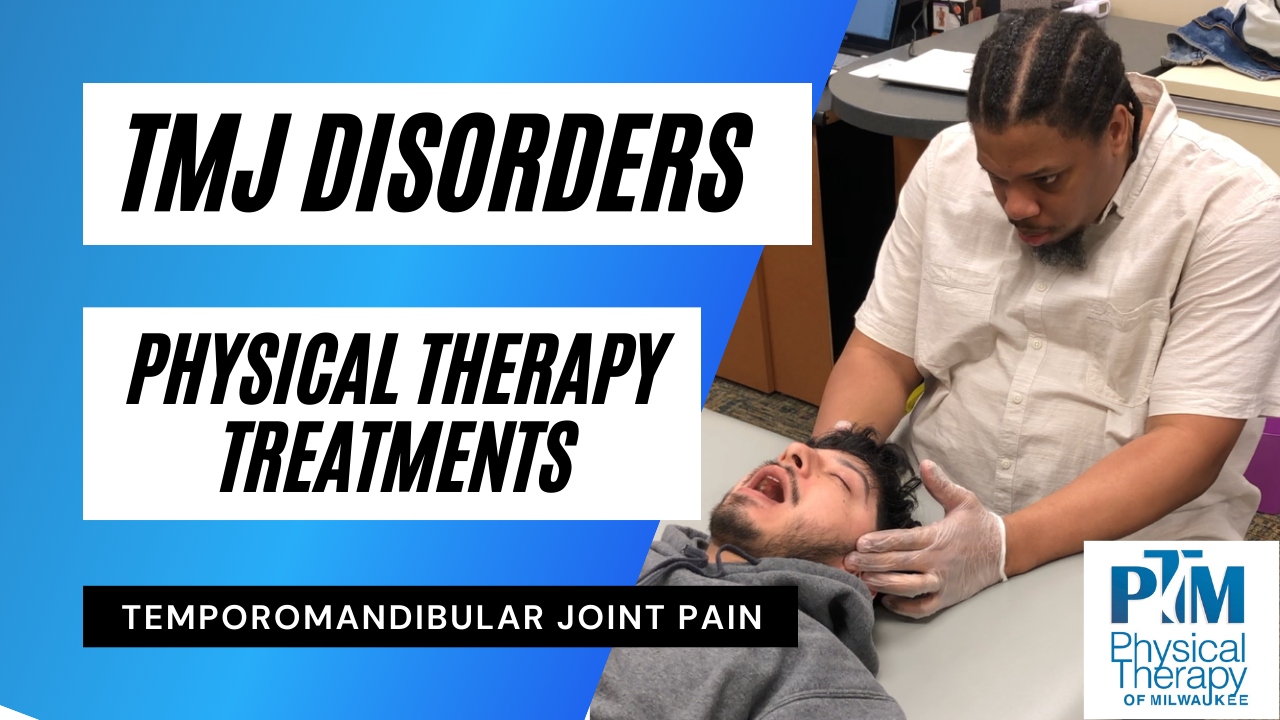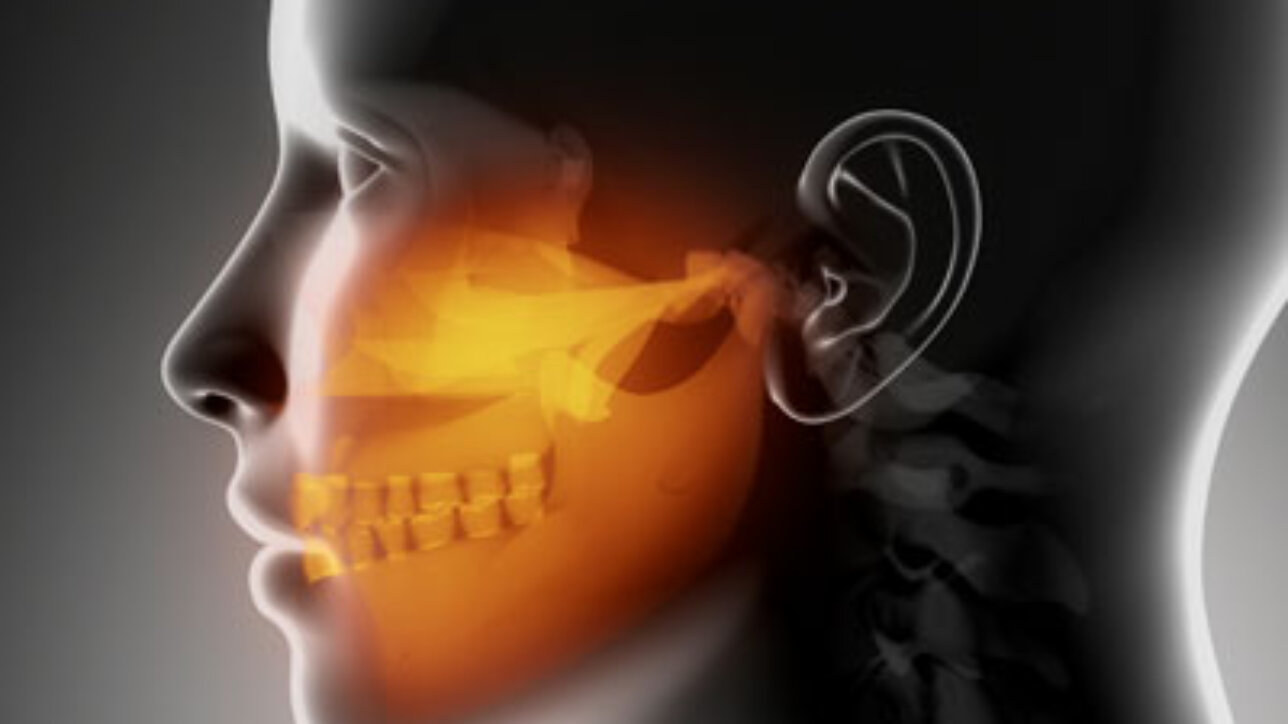What are TMJ Disorders?
First, the temporomandibular joint (TMJ) acts like a sliding hinge, connecting your jawbone to your skull.
Temporomandibular joint disorder, or dysfunction, (TMD) is a common condition that limits the natural functions of the jaw, such as opening the mouth and chewing. It currently affects more than 10 million people in the United States.
The three main types of a TMJ disorder
- Myofascial pain involves discomfort or pain in the muscles that control jaw function. – Primary TMJ muscles of mastication (chewing): Temporalis, Medial Pterygoid, Masseter, Lateral Pterygoid (Articular disc of TMJ)
- Internal derangement of the joint involves a displaced disc, dislocated jaw, or injury to the condyle.
- Osteo Arthritis refers to a group of degenerative/ inflammatory joint disorders that can affect the temporomandibular joint.
A person may have one or more of these conditions at the same time. Some people have other health problems that co-exist with TMJ disorders, such as chronic fatigue syndrome, sleep disturbances or fibromyalgia, a painful condition that affects muscles and other soft tissues throughout the body.
Common Causes of TMJ disorders
- Trauma to the jaw or TMJ joint such as:
-
- motor vehicle accidents,
- hit in the jaw
- falls
- Bruxism- involuntary habitual grinding of the teeth typically during sleep.
- Clinching- excessive clinching of the jaw
- Stress- Pressure and tension that results from a demanding situation which can be physical, emotional, and psychological.
- Dental procedures with prolonged opening of the jaw
- Misaligned teeth- abnormal alignment of upper and lower teeth
- Poor posture- slumping postures /forward head posture
Signs and Symptoms of TMJ disorders
- Pain or tenderness of your jaw, face, or neck
- Pain in one or both of the temporomandibular joints
- Aching pain in and around your ear
- Difficulty chewing or pain while chewing
- Locking of the joint, making it difficult to open or close your mouth
- Headaches
- Clicking or popping when opening or closing mouth
- Pain when speaking or yawning
Treatments for a TMJ disorders
- Experts strongly recommend using the most conservative, reversible treatments possible.
- Conservative treatments do not invade the tissues of the face, jaw, or joint, or involve surgery.
- Reversible treatments do not cause permanent changes in the structure or position of the jaw or teeth. Even when TMJ disorders have become persistent, most patients still do not need aggressive types of treatment.
- We recommend seeking treatment with a Physical Therapist if you are experiencing any of the signs and symptoms.

Physical Therapy Treatments for TMJ disorders
A Physical Therapist can help decrease your pain and improve the movement of your jaw. There are a variety of different treatments that your therapist can provide. Based on your diagnosis, your treatment plan can consist of some or all of the following treatments:
- Manual Therapy Techniques: Your therapist will use hands-on techniques to gently break up adhesions to help improve movement and relieve pain.
- Education: Your therapist may educate you on improving your posture and self-care practices that you can do at home.
- Therapeutic Exercise: Your therapist may instruct you on various exercises and stretches that you can do at home to help improve your posture and stretch the muscles that may be causing your jaw pain.
- Electrical Stimulation
- Ultrasound
- Referral to a Dentist
Conservative Treatments for TMJ disorders
- Most common jaw joint and muscle problems are temporary and do not get worse.
- Simple treatments with a Physical Therapist or Physical Therapist Assistant may be all that is necessary to relieve discomfort.
Self-Care Practices for TMJ disorders
- There are steps you can take that may be helpful in easing symptoms, such as:
- Eating soft foods,
- Applying cold and/or hot packs
- Avoiding extreme jaw movements
- Wide yawning
- Loud singing
- Gum chewing
- Learning techniques for relaxing and reducing stress
- Practicing gentle jaw stretching and relaxing exercises that may help increase jaw movement.
Pain medications for TMJ disorders
- Short-term use of over-the-counter pain medications or nonsteroidal anti-inflammatory drugs (NSAIDs), such as ibuprofen and naproxen may provide temporary relief from jaw discomfort.
- When necessary, your dentist or physician can prescribe stronger pain or anti-inflammatory medications, muscle relaxants, or anti-depressants to help ease symptoms.
Irreversible Treatments for TMJ disorders
- Irreversible treatments that have not been proven to be effective and may make the problem worse which include:
- Orthodontics may change the bite, crown and bridge work to balance the bite
- Orthodontics may grind down teeth to bring the bite into balance, called “occlusal adjustment”
- Orthodontics may recommend repositioning splints, also called orthotics, which permanently alter the bite.
Surgery for TMJ Disorders
- Surgical procedures, invades soft and connective tissues and are controversial, due to irreversibility and should be avoided as much as possible
- There have not been any long-term clinical trials to study the safety and effectiveness of surgical treatments for TMJ disorders nor are there standards to identify people who would most likely benefit from surgery.
- Patients who fail to respond to conservative treatments, for example, does not automatically mean that surgery is necessary however, If surgery is recommended, be sure to have the doctor explain to you, in words you can understand, the reason for the treatment, the risks involved, and other types of treatment that may be available.
Contact us today to schedule an appointment or complimentary consultation!
414-281-3444
[/vc_column_text]

